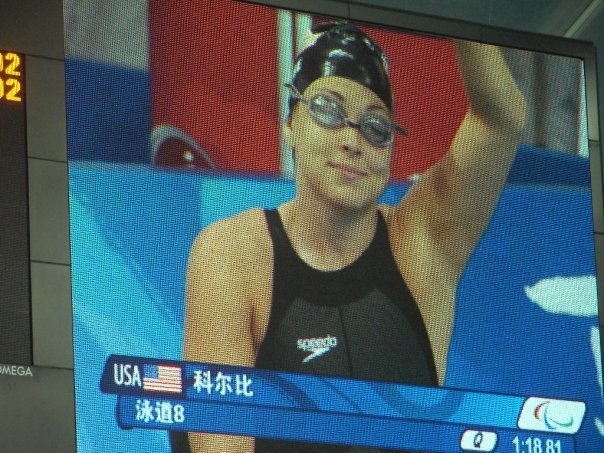At 17 years of age, my daughter Beth completed an application that asked for her motto. I watched as she gripped the pen awkwardly in her fist, writing with no hesitation, “Anything is possible.”
“Except when it’s not,” I thought.
When Beth was 14, she lived on mac and cheese and played volleyball and softball — until I fell asleep at the wheel. Our car flipped across a dark Ohio field and we left behind an ordinary life.
I was a passionate disability advocate before Beth’s C6-7 spinal cord injury. After, I struggled to see the potential she saw in her new identity. Beth led and I followed, since between the two of us, she was the brave one.
Determined to be more independent, she accepted that it would take years to partially strengthen specific muscles in her arms and trunk. She continually tried to use her hands. In the rehab pool for physical therapy, she learned how to float on her back after endless tries and sheer force of will. She loved to float across the pool with her arms slowly moving underwater. She saw a world where anything was possible.
I wondered how her motto could be true, with or without legs and hands that worked? Beth’s whole outlook differed from mine. With no idea what to expect after her injury, she wheeled forward and found connections and community. I stumbled on my guilt and depression. Since her view was clearly better, I tried to understand. I discovered more than rose-colored glasses as her growing confidence propelled her from our small town in Ohio to unlikely places.
Beth thinks of her spinal cord injury as a fortunate accident. To breathe on her own and have use of her arms, with only an inch difference between her injury and one that requires a ventilator. To find a passion for mentoring and volunteering in the disability community. To be the first in our family to experience an Ivy League education. To work long days at a law firm where she can make a difference.

Beth also sees serendipity in her journey as a swimmer. Floating freely in the rehab pool at a time when it was difficult to move on land. Meeting a national coach two years after her injury. Competing around the world on the U.S. Paralympic Swimming National Team. Becoming the first with a visible disability on the Harvard Women’s Swimming and Diving Team. Setting her 14th American record at the Beijing Paralympics.
Serendipity? Perhaps, if you add the courage to fail and the gift of minimizing obstacles. I shared many adventures with my daughter and today, my world shines brighter than ever. Not in spite of her injury, but because of it.
Beth continues to see life through a rare lens. What I finally understand about her perspective is perfect in its simplicity: everything meaningful in her life is found in what she can do. It naturally follows that walking is overrated, along with the other things she cannot do. Potential is powerful if what matters to you the most is within your grasp. For the lucky ones among us — like Beth — maybe anything really is possible.
Read more at Struggling With Serendipity.

